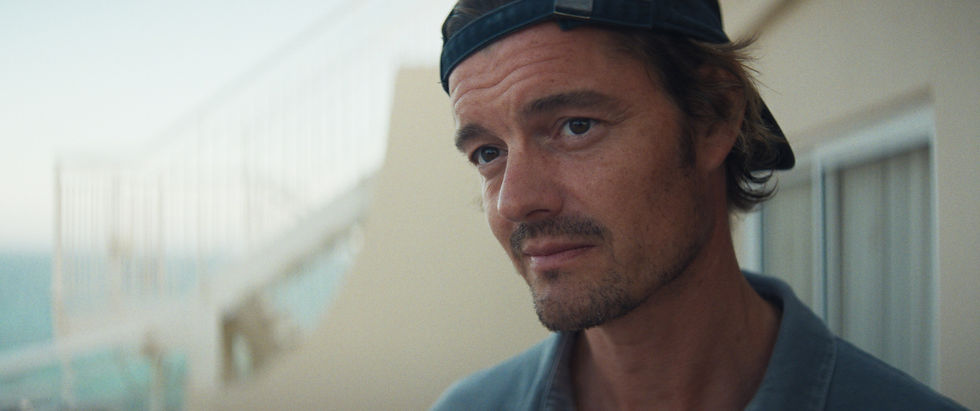Spotlight on Women Directors
- Kathleen Bondar

- Oct 29, 2018
- 3 min read
Updated: Feb 7, 2019
@ BFI London Film Festival 2018

Women film directors from all over the world showcased their films at this year’s London Film Festival making an impressive 38% contribution. With Joy (Sudabeth Mortezai) winning the Official Competition and Crystal Swan (Darya Zhuk) being tipped to win best foreign film at the Oscars, they were certainly leaving an indelible mark on the industry.

On the crest of this wave, an illustrious panel of female filmmakers met at the May Fair Hotel during the festival hosted by Helen Bownass of Sylist Magazine. So, what were their opinions about the state of the film industry and what needs to happen to keep women directors on board?
According to Eva Husson (Girls of The Sun), “visibility is everything”. Husson’s sentiments were warmly endorsed by the panel who, in their turn, passed the baton to the press.

Husson made quite a name for herself at Cannes earlier this year when she was trashed by the French press for making a noise about the lack of women directors in the festival. She recounted how eighty-two women in the film industry then marched on Cannes to protest that since 1946 only 82 films out of 1,645 screened in Competition have been directed by women.
Perhaps some credit must be dished out at this juncture to the London Film Festival organisers, steered by two women (Artistic Director, Tricia Tuttle with Managing Director Anne-Marie Flynn), who were backing women directors in the line-up. London claims 50% representation in three of the competition strands. This can be contrasted to Cannes which this year offered three women directors out of twenty in competition and Venice which included only one (Jennifer Kent’s The Nightingale). Eva Husson certainly had a point.

The panel discussion turned to the problem of Western style film making from a male point of view, with everyone agreeing that Hollywood dominates the global screens. Hollywood men control the industry and how women are portrayed. Amanda Kramer (Ladyworld), a professed socialist, declared of Hollywood “I want no part of them.” Xiaolu Guo (Director, Five Men and a Caravaggio) made the case for increasing regional film making worldwide to support an alternative view from female filmmakers.

Euzhan Palcy (Sugar Cane Alley) suggested “women in Hollywood need to be trained to have another vision.” “Change the audience”, she said. Running with this, Palcy described how she handed out postcards in Martinique and Guadeloupe where Sugar Cane Alley was filmed, offering a free seat on the condition that if someone liked her film they would send a postcard to friends or family living abroad.

Several of the panel praised Agnes Varda who famously declared that film making was not about making money. Sarah Colangelo, (The Kindergarten Teacher) endorsed this, “for me it’s about personal honesty”.
But Husson was having no part with the idea that making money is somehow secondary. “I wholeheartedly disagree with that!” She asserted that film-making is an industry and women film makers can make money.
That didn’t diminish the admiration everyone felt for the pioneering director, Varda. Georgia Parris (Mari), also cited Varda as an inspiration. A couple of days later as the LFF closed, Parris described her journey. Ten years previously, she had been a volunteer at the LFF and didn’t even realise women could be directors. After seeing Joanna Hogg’s Archipelago 2010, she decided she wanted to be one.

For the run down on the LFF 2018 female directors go to https://www.bfi.org.uk/news-opinion/news-bfi/features/lff-62-female-directors
Picture this – the official photoshoot of the women directors participating in the LFF 2018 https://www.bfi.org.uk/news-opinion/news-bfi/features/lff-62-photo-female-filmmakers


